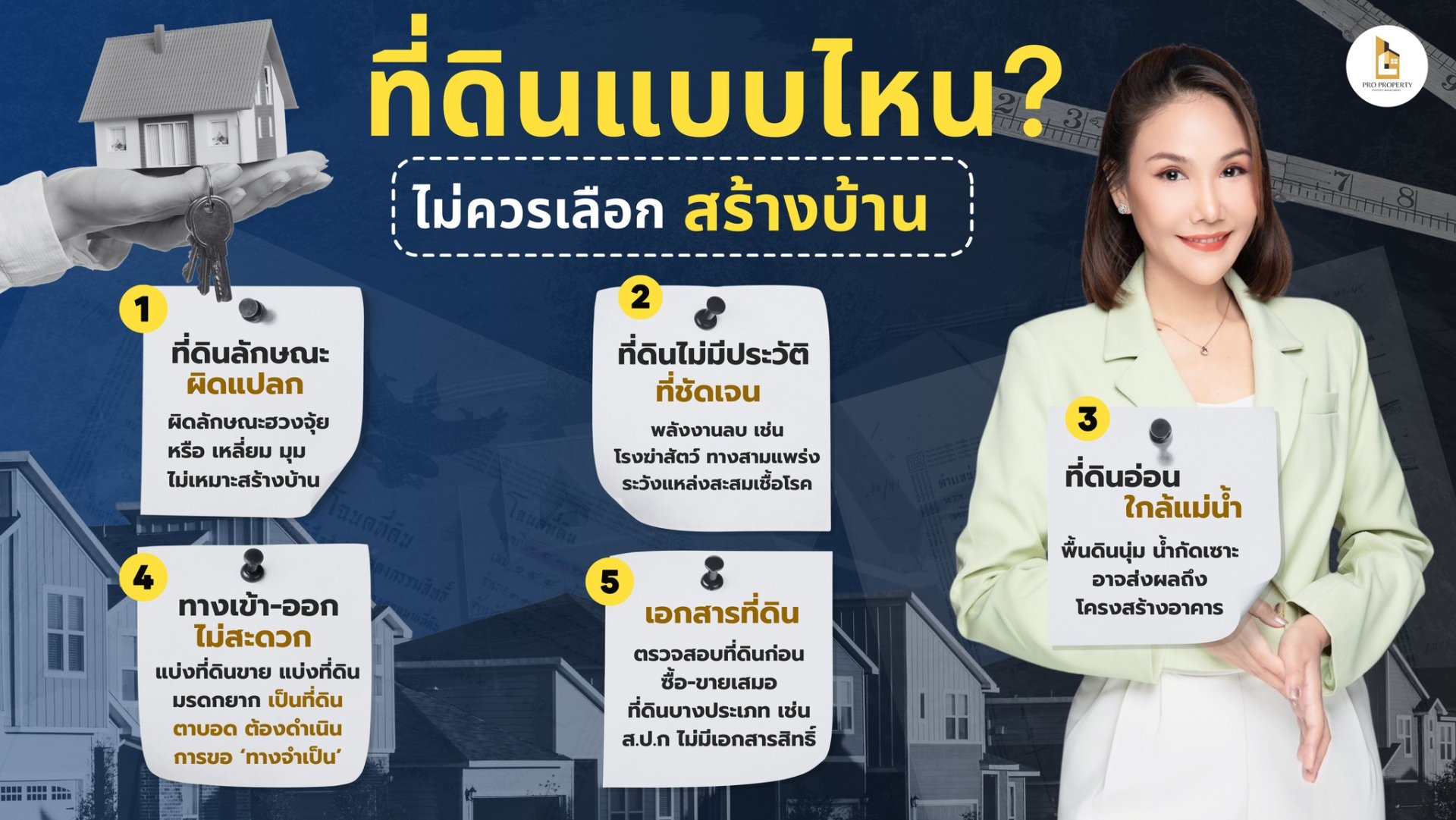What kind of land should not be chosen to build a house?

Land is considered a valuable asset for investment, as land prices are constantly increasing. However, some types of land require careful consideration when purchasing land for building a house, especially for those with feng shui beliefs, as they may negatively impact the occupants or owners.
According to the House Builders Association, there are five prohibited land types for building a house:
Unusual Land Shapes that Contrary to Feng Shui Principles
Land that is unsuitable for feng shui is triangular or flag-shaped land. This is believed to bring about harm or damage if lived in or operated. Residents or family members will suffer frequent illnesses, arguments, financial difficulties, and losses in business.
Furthermore, land that is lower than the surrounding area or the surrounding area is considered prohibited in Feng Shui, as it will cause all sorts of negative influences to the house, creating a sense of unrest and anxiety.
Land that resembles a hammer, machete, or a trapezoidal shape is said to be prone to misfortune, such as frequent accidents or health problems. However, if we analyze this logically, land of this type cannot be fully utilized because it has angles that are not suitable for house design.
___________________________________________
Land with an unclear history
Before purchasing land, carefully examine the land's history, such as whether it was previously built on or operated by someone else, and who owns it. If it's a slaughterhouse, hospital, cemetery, or religious site, avoid purchasing or occupying it, as these are sources of negative energy and also harbor germs.
Furthermore, land adjacent to shrines and sacred sites should not be purchased, as they pose a threat to the health and well-being of family members. Land directly adjacent to curves, three-way intersections, or roads leading directly to the house is considered extremely dangerous and is absolutely not suitable for building a house.
___________________________________________
Soft land or near a river
Many people prefer land near a river because it offers comfortable living and shady surroundings. However, it's important to thoroughly research the land before purchasing, as building a house near a river can be susceptible to erosion and collapse. Land with soft, unstable, and subdued soil is also unsuitable for building, as it can lead to future soil subsidence. It also violates Feng Shui principles. If you do business or live on land that is not secure or stable, it is believed that no matter what you do, you will not prosper and your foundation will be unstable.
___________________________________________
Inconvenient entrances and exits
Land without an entrance or exit, surrounded by other land, cannot access public roads. This could lead to future problems, such as subdividing a large plot into smaller plots for inheritance, which could lead to inconsistencies or confusion in requesting access routes.
Therefore, before deciding to purchase land, you should first verify the location of the land by entering the title deed number and checking with the relevant district or subdistrict Land Department. If you find that there are land numbers surrounding your plot, assume that it may be land with no entrance or exit (except for subdivision title deeds). You can then request a survey of the entire plot.
In the case of blind land, the owner of that plot has the right to sue the owner of the surrounding land to open the way to a public road, known as a "necessary road." A preliminary check should be made to determine if there is a registered easement. Traveling on "essential roads" must minimize damage to surrounding land plots and require compensation to the landowners.
___________________________________________
Various Land Legal Documents
Before purchasing land, carefully examine the land to ensure its legality. Clear legal documentation is required, detailing the types of ownership rights. Carefully review and understand the details. Some land cannot be owned or transferred. Land without title deeds, such as Sor Por Kor land, is unused government land allocated to farmers for their livelihoods. Therefore, it cannot be divided or transferred to others.
There are also types of land that cannot be issued title deeds, such as land with a title deed (Sor Tor Kor), which is a document granting temporary land use rights to those who have encroached on a national forest reserve. Therefore, it cannot be used to apply for a title deed. Before purchasing land to build a quality house, thoroughly research and consider the land's background and surrounding environment.
___________________________________________
Source of the article: REIC


